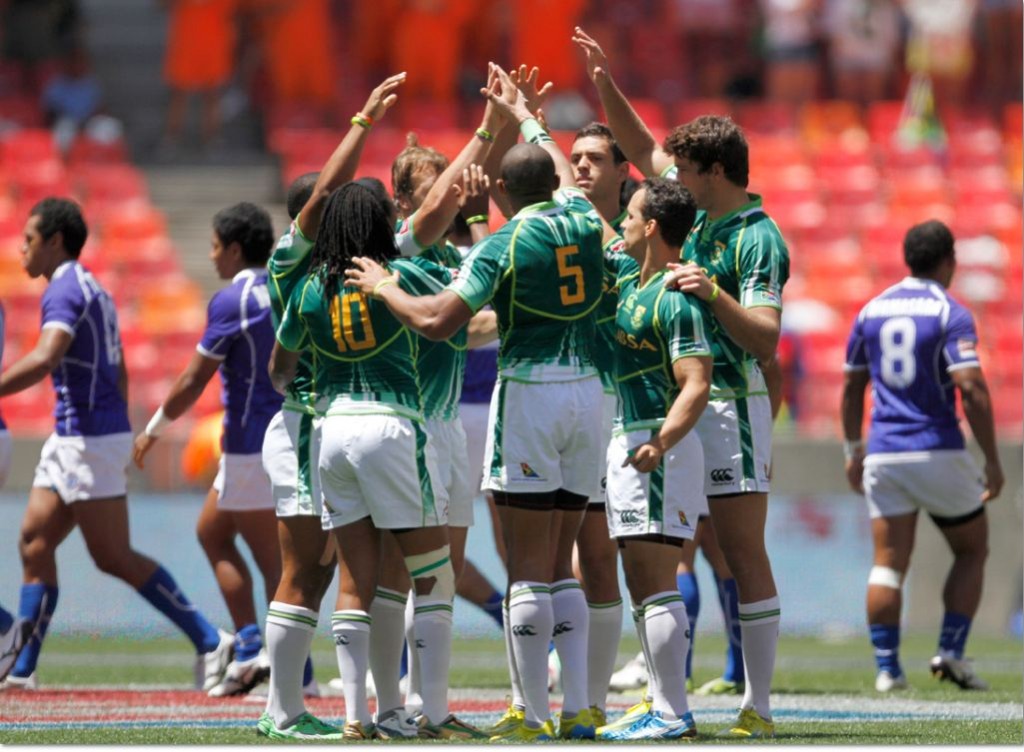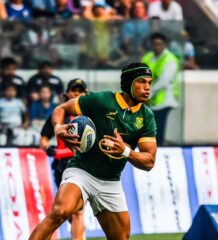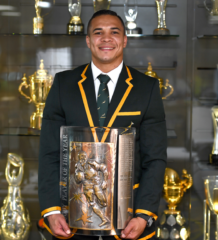SARU wins IRB Development Award
The South African Rugby Union (SARU) has been awarded the IRB Development Award 2012 for its innovative and practical approach to player development regardless of ethnic origin, the IRB announced on Saturday,
SARU President Oregan Hoskins was presented with the Award at the Confédération Africaine de Rugby AGM in Port Elizabeth by IRB Council Member Abdelaziz Bougja.
“This is a singular honour and one of which SARU can be very proud,” said Mr Hoskins. “We identified a need and found a practical solution to address it. In the past decade thousands of aspiring young rugby players from previously disadvantaged communities have benefited from the project.
“To be recognised by the IRB from the hundreds of development projects that take place annually around the world of rugby is a proud moment. I’d like to congratulate the SARU staff and sports scientists who have worked on the project for the past ten years – I hope this award provides the inspiration for them to redouble their efforts.”
Since its launch in 2003, the Capital Works Project has been a key part of SARU’s overall goal to make Rugby fully representative at all levels throughout the country.
From research conducted by the world renowned Sports Science Institute of South Africa (SSISA) at the Under 18 National Craven Week tournament it was found that, on average, black and coloured players weighed 8kgs less than their white counterparts.
The study also showed that the majority of these players did not have access to weight training equipment, another barrier holding back black and coloured players from progressing to the highest level.
The wheels were put in motion, literally, to tackle this issue through the design and manufacture of a Mobile Team Training System (MTTS), which takes gym equipment to the people in a self-contained transportable unit.
Big enough (at 12m x 3m) to train a squad of 40 players simultaneously, the MTTS has been an outstanding success.
By the middle of 2011, SARU had distributed 32 MTTS units across the country to the remotest of areas. The 33rd unit was installed two weeks ago in the rural, rugby outpost of Springbok – on South Africa’s northern border with Namibia. Coinciding with the delivery of the MTTS, SARU organises strength-training workshops for all coaches and trainers in the region and also provides on-going monitoring and support.
As a direct result of the Capital Works Project, data collected by SSISA shows that the percentage of black and coloured players participating in weight training has increased from 50 to 80 per cent between 2002 and 2010.
In 2007, SARU further developed this initiative by supplying a smaller version of the MTTS to schools.
Twenty Mobile School Training System (MSTS) gyms are now in use in previously disadvantaged communities, and a further 40 schools will benefit from this scheme over the next three years. Training in how to use the multi-purpose equipment is again provided by SARU.
Related Posts
« 2013 Blues Wider Training Group announced South Africa undefeated on day one of Cell C Nelson Mandela Bay Sevens »

















